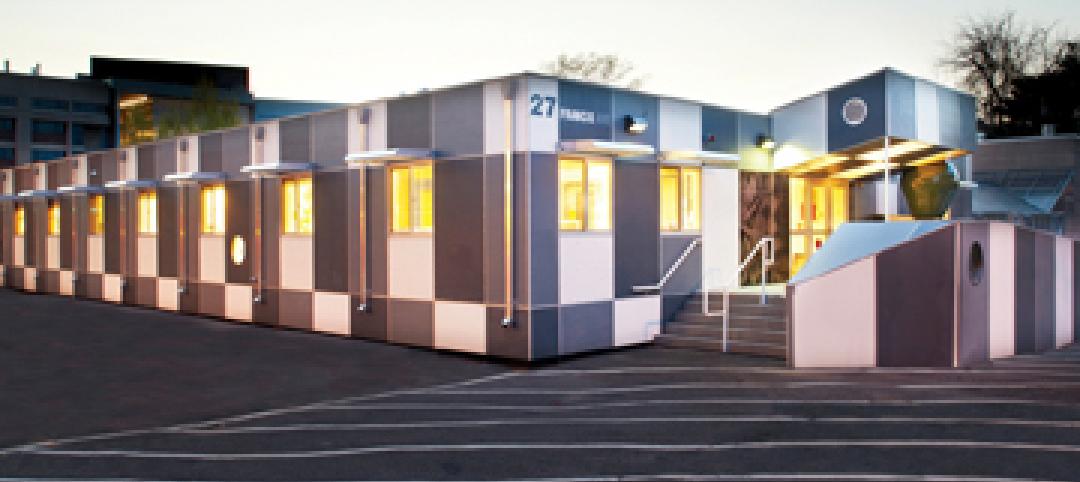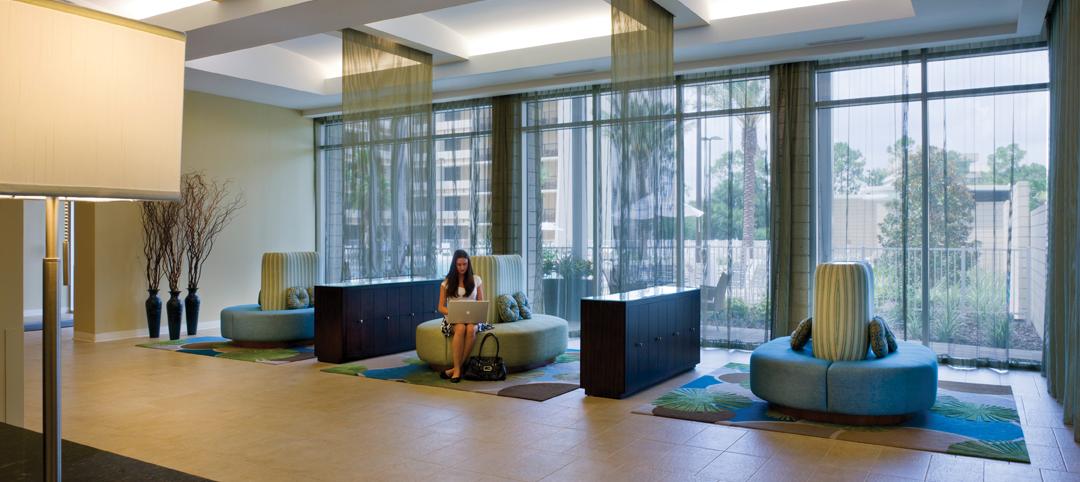Ongoing evolution in the retail industry—including near-global access to the Internet and speedy adoption rates of smartphones—is forcing retailers to create a brick-and-mortar shopping experience that rivals the convenience and immediacy of the Internet. As a result, hundreds of retailers in thousands of locations are committing capital to renovating stores for an enhanced overall customer experience.
“There is no disputing that the Internet is having a significant impact on consumer buying trends and retailer strategies,” said Steve Jones, Managing Director, JLL. “But almost 95 percent of sales continue to take place in stores, which means that as technology changes to improve customer experiences, the brick and mortar stores also must change.”
Omni-channel shopping, technology, and Big Data are shaping how retailers approach the customer experience and their consequent renovation programs. Retailers should consider these three key questions when defining the type and magnitude of renovations to enhance their customers’ experiences:
1. Are we offering an omni-channel experience?
Retailers striving to build a true omni-channel experience are merging at-home, in-store and mobile commerce into one seamless shopping experience. Customers want continuity, so the look and feel of every channel, from mobile to desktop to in-store, should be the same.
For example, AMC Theatres recently added an expanded food and beverage menu to concession stands and replaced conventional movie chairs with wide, comfortable recliners. In addition, AMC began offering guests the opportunity to buy tickets online—and reserve actual seats at the theatre—before arriving. The omni-channel experience of buying tickets online translates to a brick-and-mortar customer experience unrivalled in the entertainment industry. In fact, AMC sells more tickets with fewer seats – to sold out audiences.
2. Are we leveraging the right technology?
To keep people in their stores, smart retailers are making their locations interactive and engaging with the right technology. Tablets and smartphones can be used to promote convenience by taking customer payments rather than making them wait in line, demonstrate product features, offer more item options and encourage social sharing. In addition to tablets, the use of large displays purposefully engross customers, making them forget they’re inside a store.
“Retailers are fighting to gain and keep consumer attention, but interactive experiences rooted in technology can help combat disengagement,” said Steve Yenser, National Retail Brokerage Lead, JLL. “Technology will be crucial to the future role of the store, as today's consumers need a reason to come into a physical retail place, beyond merely making a transaction, because a transaction can take place anywhere and anytime.”
3. Are we collecting actionable data to help personalize the customer experience?
An Infogroup Targeting Solutions study found that 54 percent of marketers have already invested in data solutions to date, and nine out of 10 plan to do so in 2014. Smart retailers know that truly personalized experiences are only possible when customer information about behavior, history and whereabouts is gathered. Collecting this actionable data through customer loyalty programs, point of sale data and online shopping behavior ultimately enables retailers to implement dynamic browsing, customized displays, personalized recommendations and shopper-specific discounts.
JLL and Food Lion collected data that revealed that the grocer’s customers were increasingly focused on produce. Based on that finding, Food Lion wasted no time renovating its stores to better position its produce offerings and, in the process, enhancing the overall customer experience.
Jones notes that in addition to the renovation work completed at AMC and Food Lion, smart retailers can enhance the customer experience and ultimately maximize return on investment of store renovations with modified layouts, in-store kiosks, virtual walls, virtual dressing rooms, augmented reality and new product offerings.
“Customer experience is individual to each retailer and the clients they target,” said Jones. “It’s crucial for retailers to ask the right questions and understand the role big data, technology and the omni-channel experience play in their overarching strategy so the appropriate renovations programs can be developed.”
About JLL
JLL’s Retail Group serves as the industry’s leader in retail real estate services. The firm’s more than 850 dedicated retail experts in the Americas partner with investors and occupiers around the globe to support and shape investment and site selection strategies. Its retail specialists provide independent and expert advice to clients, backed by industry-leading research that delivers maximum value throughout the entire lifecycle of an asset or lease. The firm has more than 80 retail brokerage experts spanning 20 major markets, representing more than 100 retail clients. As the largest third party retail property manager in the United States, JLL’s retail portfolio has 305 centers, totaling 65.7 million square feet under management in regional malls, lifestyle centers, grocery-anchored centers, power centers, central business districts, transportation facilities and mixed-use projects.
For more news, videos and research from JLL’s Retail Group, please visit: www.jllretail.com
Related Stories
| Mar 16, 2011
AIA offers assistance to Japan's Architects, U.S. agencies coordinating disaster relief
“Our hearts go out to the people of Japan as a result of this horrific earthquake and tsunami,” said Clark Manus, FAIA, 2011 President of the AIA. “We are in contact with our colleagues at AIA Japan and the Japan Institute of Architects to offer not only our condolences but our profession's technical and professional expertise when the initiative begins focusing on rebuilding."
| Mar 16, 2011
Are you working on a fantastic residence hall project? Want to tell us about it?
The feature story for the May 2011 issue of Building Design+Construction will focus on new trends in university residence hall design and construction, and we’re looking for great projects to report on and experts to interview. Projects can involve new construction or remodeling/reconstruction work, and can be recently completed, currently under construction, or still on the boards.
| Mar 16, 2011
Foster + Partners to design carbon-neutral urban park for West Kowloon Cultural District in Hong Kong
Foster + Partners has been selected by the board of the West Kowloon Cultural District Authority to design a massive 56-acre urban park on a reclaimed harbor-front site in Hong Kong. Designed as a carbon-neutral development, “City Park” will seamlessly blend into existing streets while creating large expanses of green space and seventeen new cultural venues.
| Mar 15, 2011
What Starbucks taught us about redesigning college campuses
Equating education with a cup of coffee might seem like a stretch, but your choice of college, much like your choice of coffee, says something about the ability of a brand to transform your day. When Perkins + Will was offered the chance to help re-think the learning spaces of Miami Dade College, we started by thinking about how our choice of morning coffee has changed over the years, and how we could apply those lessons to education.
| Mar 15, 2011
What will the architecture profession look like in 2025?
The global economy and the economic recession have greatly affected architecture firms' business practices. A Building Futures survey from the Royal Institute of British Architects looks at how these factors will have transformed the profession and offers a glimpse of future trends. Among the survey's suggestions: not only will architecture firms have to focus on a financial and business approach rather than predominantly design-led offices, but also company names are predicted to drop ‘architect’ altogether.
| Mar 15, 2011
Passive Strategies for Building Healthy Schools, An AIA/CES Discovery Course
With the downturn in the economy and the crash in residential property values, school districts across the country that depend primarily on property tax revenue are struggling to make ends meet, while fulfilling the demand for classrooms and other facilities.
| Mar 14, 2011
Renowned sustainable architect Charles D. Knight to lead Cannon Design’s Phoenix office
Cannon Design is pleased to announce that Charles D. Knight, AIA, CID, LEED AP, has joined the firm as principal. Knight will serve as the leader of the Phoenix office with a focus on advancing the firm’s healthcare practice. Knight brings over 25 years of experience and is an internationally recognized architect who has won numerous awards for his unique contributions to the sustainable and humanistic design of healthcare facilities.
| Mar 11, 2011
University of Oregon scores with new $227 million basketball arena
The University of Oregon’s Matthew Knight Arena opened January 13 with a men’s basketball game against USC where the Ducks beat the Trojans, 68-62. The $227 million arena, which replaces the school’s 84-year-old McArthur Court, has a seating bowl pitched at 36 degrees to replicate the close-to-the-action feel of the smaller arena it replaced, although this new one accommodates 12,364 fans.
| Mar 11, 2011
Temporary modular building at Harvard targets sustainability
Anderson Anderson Architecture of San Francisco designed the Harvard Yard childcare facility, a modular building manufactured by Triumph Modular of Littleton, Mass., that was installed at Harvard University. The 5,700-sf facility will remain on the university’s Cambridge, Mass., campus for 18 months while the Harvard Yard Child Care Center and the Oxford Street Daycare Coop are being renovated.
| Mar 11, 2011
Holiday Inn reworked for Downtown Disney Resort
The Orlando, Fla., office of VOA Associates completed a comprehensive interior and exterior renovation of the 14-story Holiday Inn in the Downtown Disney Resort in Lake Buena Vista, Fla. The $25 million project involved rehabbing the hotel’s 332 guest rooms, atrium, swimming pool, restaurant, fitness center, and administrative spaces.












